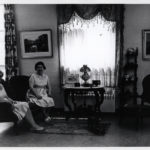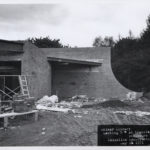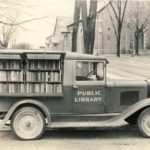
Bethlehem Public Library — a short history
On May 14, 1913, the Delmar Progress Club organized the Delmar Free Library Association. Bethlehem’s first public library opened in a room on the second floor of a schoolhouse on the corner of Kenwood Avenue and Adams Street. Granted a provisional charter in July 1913 by the Board of Regents, the Delmar Free Library was staffed and administered by Progress Club volunteers until the school district took over proprietorship in 1931.
The town’s first librarian was Eula Hallam, who presided over 2,750 titles and ordered the library’s first magazine subscription. She also drove the bookmobile, the first in the state to be operated by a school district library
In the ensuing years, the library outgrew two locations, and moved to its current facility in 1972. In 1981 the circulation desk was computerized, and in 1983 the library acquired its first public access computer. In 1998 the card catalog was replaced by a computerized catalog linked to the other 28 libraries of the Upper Hudson Library System.
In 2004, the library completed an interior renovation, remaining open during construction for all but a few days. The following year, community volunteers planted gardens on the grounds.
Today, the library offers more than 250,000 items for borrowing, including books, digital media, CDs, DVDs and a robust Library of Things collection. We are members of the 29-member Upper Hudson Library System, which allows our cardholders access to additional resources throughout the system. The library has dozens of public computers and digital research tools, and provides free WiFi access throughout town. Within walking distance of the middle and high schools, the library also offers a variety of programs and events for all ages.
In addition to its own website, it maintains a Facebook page and other social media accounts.
The library partners with the school district, Bethlehem Senior Projects and other community organizations, and offers its meeting rooms free to community groups. The library sponsored almost 1,032 programs in 2024, and 221,744 people passed through its doors.
The library continues to be a vital and relevant part of Bethlehem community life — as it was at its founding over a century ago.
Read the library’s centennial eBook “They Built Better Than They Realized.” (pdf)



